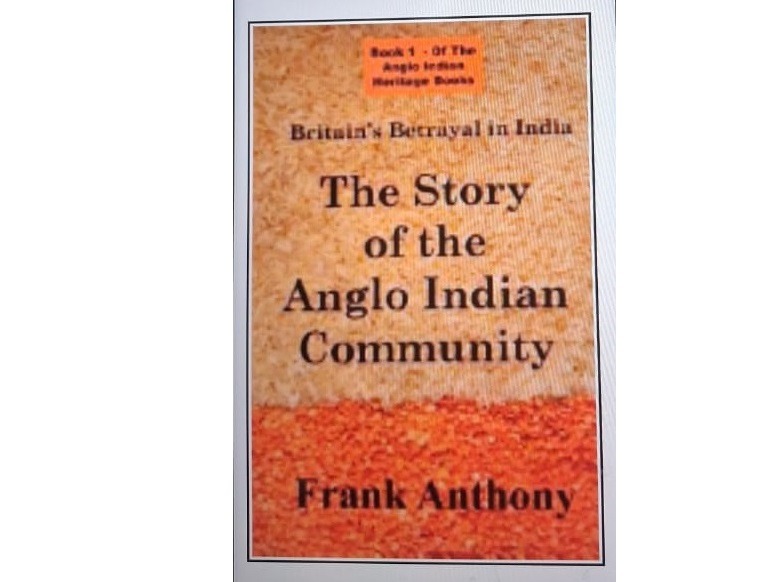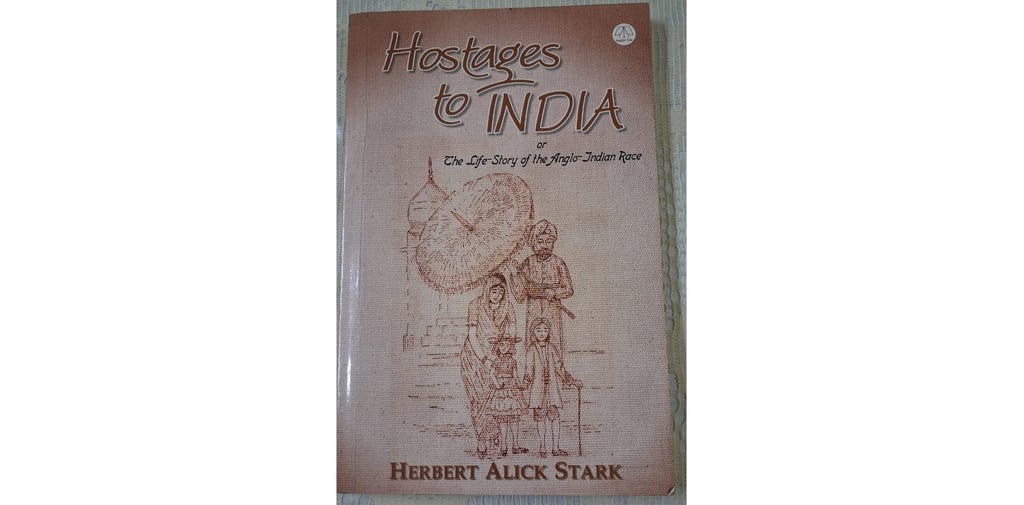Anglo-Indian—Who?
Who qualifies as an Anglo-Indian?
11/13/20244 min read
The point I strove to make in my previous Blog could well provide an answer to the question: “What is an Anglo-Indian? Such a terse query required, to my mind, a straightforward, telling answer: “An Anglo-Indian is a human being”. Today I raise the topic: “Who is an Anglo-Indian”?
If we take the Constitutional definition to be accurate, an Anglo-Indian is anyone who permanently resides in India and whose ancestors in the male line were of European descent. Expanding on this version is the one put forward by the All-India Anglo-Indian Association, which also insists that the mother-tongue of the Anglo-Indian is English, and English alone. This is what is stipulated, but as an old Anglo-Indian saying goes: “There’s many a slip between the cup and the lip.”
So, then, who is an Anglo-Indian? I am quite ready to accept both interpretations, but I will not compromise on the premise that an Anglo-Indian must be a permanent resident of India. All too often people with Anglo-Indian roots and ancestry, who have abandoned the motherland—India—continue to identify themselves as Anglo-Indians, clinging to the accommodatingly specious argument that: “You can take an Anglo-Indian out of India, but you can’t take the Indian out of an Anglo-Indian.” Such a world-view does not hold water and does disservice to the motherland as much as it besmirches the adopted country. Another not dissimilar case in point is that “a leopard cannot change its spots”. I guess Lady Macbeth had similar misgivings—as she assiduously scrubbed her gory hands—and quite a number of us know how that tragedy ended.


Long-time leader of the Community, Frank Anthony, published a book, in 1969, with the title “Britain’s Betrayal in India”. It is deliberately described by the author as “The story of the Anglo-Indian Community”. This label, therefore, actually casts aspersions as to its veracity, even though it is factual enough. But what I found curious, and it is something that has never been openly discussed, is the key word “Betrayal”. One of my dictionaries defines “betrayal” as “the placing (of a person, or a country) in the power of an enemy”. A second word mentioned is “disloyalty”. Another dictionary terms “betrayal” as “acting treacherously towards (a person, or country)”, and provides the synonym “unfaithful”. My Thesaurus gives more down-to-earth explanations of the same: “betrayal” suggests a “double-cross”, “back-stabbing”, “abandonment”, “perfidy”, “duplicity” and “bad faith”. In the course of my fairly extensive research, in and around the subject, I have not come across any document that stipulates that Imperial Britain was under any obligation to look after the needs of their philandering cohorts or the resulting progeny of such hush-hush liaisons. At any rate, it is a fact that it takes two to tango; blaming one and exonerating the other, simply will not do. The Anglo-Indian came into existence not by fluke; it was a process, covert yet overt, unplanned yet purposeful, tempting yet tantalizing, two cultures subsumed into one and ultimately disowned by both. “Woe is me”, as the song goes and continues: “Shame and scandal in the family!”
That die-hard Imperialist, Rudyard Kipling, was completely wrong, when he trumpeted the refrain: “Never the twain shall meet”. Was he just bumptious, or simply ostrich-like? And “dregs” is another word that has no meaning in the context—every dog must have its day. At the other end of the spectrum, an infamous (to me, most definitely) Indian critic, Professor MK Naik, avers, in a very off-the-cuff way, that necessity is the mother of invention and the father of the Anglo-Indian [ in my words, taken from his book “Mirror on the Wall”]. Have you ever come across a greater insult to Indian womanhood? If Naik’s thesis is true, Britain has to be berated for sending only scum-bags and scalawags to India; also, the virtue of Indian womankind, in general, is called into question! Does Naik even understand what he is proselytizing, or is he cock-sure that a literary luminary like him can get away with gobbledygook.


Another Anglo-Indian writer, this time even before Frank Anthony, brought out “Hostages to India” in 1926. He is Herbert Alick Stark and he sub-titles his book “The Life-Story of the Anglo-Indian Race”. I do not think he was being pretentious, but it is my belief that encapsulating the life-story of an entire “Race” is even more difficult than confining a single human character between the covers of a volume. Again, the word “Hostages” is curious. One of my dictionaries says a “hostage” is “a person held or seized as security to comply with a demand or a condition” while my Thesaurus lists “captive”, “prisoner”, “surety”, “pawn” and “gage” as synonyms. While most of these words did not hold true at the time of Stark writing this missive, they are blatantly incorrect when it comes to the period after the Independence of the country. In the 1930s, if we go by the logic of the argument put forward, every Indian—and that means every Anglo-Indian too—was a captive or a prisoner of the British Raj; the monumental irony is that he was a captive in his own country, subdued to a great extent by his fellow-men—acting at the behest of their foreign masters. Again, I repeat: “Woe is me!”
Words are dangerous, my dear Readers. They can propel you to the top of the pile, or they can pummel you into the dust, there to be done and dusted and consigned to oblivion.
That is why writers used to be held in such high esteem in times past. Then and now, every once-in-a-while, a Man will emerge from the company of men—and women, to be sure—and he will strive to lead you in the ways of truth and life.
